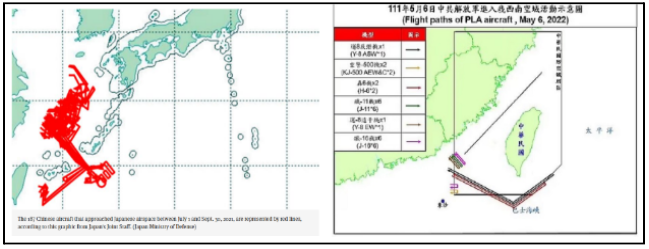Russell Hsiao is the executive director of the Global Taiwan Institute (GTI) and editor-in-chief of the Global Taiwan Brief.
Will KMT Reform after the 2020 General Elections?
In the aftermath of the Nationalist Party’s (Kuomintang or KMT) second-consecutive defeat in the 2020 presidential election and its lackluster performance in the Legislative Yuan election on January 11, Chairman Wu Den-yih (吳敦義, b. 1948) and other senior party officials resigned en masse. The party’s next chairman and central standing committee (中常會) members will be elected on March 7. At the time of this writing, four candidates have thrown in their hats to be the ailing party’s next chairman. There are several potential candidates but only a few have formally declared their candidacy thus far. Those who have formally declared include Chang Ya-chung (張亞中, b. 1954), Wu Chih-chang (武之璋, b. 1942), Hau Lung-bin (郝龍斌, b. 1952), and Johnny Chiang (江啟臣, b. 1972). Other possible and non-exhaustive list of candidates reported on in the local media include KMT Tainan chapter head Hsieh Lung-chieh (謝龍介, b. 1961), Kaohsiung Mayor Han Kuo-yu (韓國瑜, b. 1957), New Taipei City Mayor Hou You-yi (侯友宜, b. 1957), and Legislator Chiang Wan-an (蔣萬安, b. 1978).
After the devastating 2016 general elections, the KMT flirted with a shift towards a more conservative and radical orientation by electing their botched 2016 presidential candidate, Hung Shiu-chu (洪秀柱, b. 1948). Four months into her presidential run and a little over three months before the 2016 elections, Hung was replaced by Eric Chu in an extraordinary party election that saw her benched in a last-minute attempt to salvage the election. After Chu and the KMT’s categorical defeat in the presidential and legislative elections, Chu resigned as chairman of the KMT. The vacancy paved the way for supporters of the dismissed presidential candidate to hoist Hung up to the helm of the party in a provisional election that saw Hung defeating her closest opponent by a decisive 23 percent.
Wu Den-yih’s victory as party chairman in May 2017 with 52.24 percent of the votes appeared to point to the party’s return to a mainstream orientation and a victory for the “establishment wing” of the KMT that had been withering. According to Lauren Dickey in reference to Wu’s victory, “his win is an important turning point as the opposition party seeks to redefine itself. In terms of cross-Strait relations, it suggests a return to an outlook far more moderate than blatant support for unification.” A native Taiwanese, Hakka-minority, and part of the party’s local faction (本土派), Wu was ostensibly elected because he was seen as capable of speaking to and playing to these political advantages and appeal to a general audience—especially compared to Hung. At first glance, the party’s sweeping electoral success in the 2018 local elections suggested that Wu could be a strong contender as the party’s presidential candidate for 2020. Yet, the incredible surge in popularity of the Kaohsiung mayor and then KMT presidential candidate clearly derailed those forecasts.
It is worth remembering that even with Wu, Beijing had its doubts about his political reliability. According to Dickey: “His (Wu’s) emphasis on the ‘different interpretations’ clause of the so-called ‘1992 Consensus’ is widely interpreted as a warning signal for Beijing. Moreover, unlike Hung who overtly supports unification with the PRC, Wu sees both Beijing’s ambitions for unification under ‘one country, two systems’ and Taiwanese pursuit of independence as destabilizing options.”
According to FPRI Research Associate Thomas Shattuck: “The KMT has two primary issues: an aging support base and a perceived outdated policy on China.” Indeed, as Bonnie Glaser of the Center for Strategic and International Studies noted at a conference co-hosted by Global Taiwan Institute and The Heritage Foundation:
“The real question is whether the party [KMT] itself reforms. Whether some of the older generation people move aside [and] make way for the younger generation. Whether they try to redefine themselves as an indigenous party. There are younger people that I’ve talked to in the KMT that would like to be the ‘Taiwan Kuomintang,’ not the ‘China Kuomintang’—that may be a bridge too far in the immediate future. But they have to figure out their messaging and their policies, and, of course, fundamentally have to examine what their policies going to be going forward towards Beijing. Are they simply going to stick with the ‘1992 Consensus’ or are they going to come up with new policies? If they do not revise their policies going forward, then I doubt that they will be able to win support. The most important thing is [sic] KMT reform and generational change.”
The KMT’s Central Standing Committee—the real locus of the party’s decision making—will be elected on the same date as the party chairman. According to the Party Constitution, the Central Standing Committee consists of 39 members, 32 of whom are elected by party representatives. Five members will be designated by the party chair, and the remaining two positions are filled by the heads of the party’s Youth League and its Department of Youth Affairs.
It remains to be seen whether the “establishment wing” of the party will lead or become further marginalized within the KMT. As Shattuck nicely sums up: “The danger lies in that if the KMT does not reform its cross-Strait policy and identity, the country’s youth will continue to view the KMT as an old, backward party, forcing them to vote for the DPP as the only other viable major party. The world has changed, and China has changed, so why shouldn’t the KMT’s policies also reflect these changes?”
The main point: The KMT will elect a new chairman and central standing committee members in March 2020. These elections will determine the direction of the party and indicate whether or not the KMT will undertake the necessary reforms to remain a viable party.
Correction: An earlier version of this article incorrectly stated that there are three candidates who have declared their candidacy for the KMT chairmanship.
Senior Chinese Official Calls for More Effective Preferential Measures after Taiwan’s General Elections
On January 19, the Chinese Communist Party (CCP) held its “2020 Taiwan Work Conference” (2020年對台工作會議) in Beijing. The annual conference is the first major policy meeting laying out the CCP’s policy and approach toward Taiwan since the island-democracy had its general elections on January 11. The results of the elections saw the incumbent president, Tsai Ing-wen (蔡英文), and her ruling party, the Democratic Progressive Party (DPP), win a second-term as president and maintain an absolute majority over the country’s Legislative Yuan, respectively. This clear blow to Beijing comes amid the intensification of its “soft-hard” measures over the past several years to diplomatically isolate and coerce the central government in Taiwan while at the same time lure people and businesses from Taiwan through a raft of preferential economic measures (such as the 31 measures released in February 2018 and later 26 measures in November 2019) that provide equal if not special treatment for Taiwan entities.
The work conference was attended by the deputy director of the inter-agency policy-coordinating body, the CCP’s Taiwan Affairs Leading Small Group (TALSG)—which is the highest-level party organ responsible for developing the party-state’s Taiwan policy—Wang Yang (汪洋). Wang is concurrently a member of the all-powerful Politburo Standing Committee (PBSC) and chairman of the Chinese People’s Political Consultative Conference (CPPCC). Wang headlined the conference and declared that the CCP should raise the effectiveness of its preferential measures of “benefit Taiwan for the people’s interest” (惠台利民), promote more cross-Strait youth exchanges, emphasize the “One-China principle” and resolutely oppose and contain any forms of Taiwan independence. The 2020 meeting was chaired by State Councilor and PRC Foreign Minister Wang Yi (王毅). The 2018 and 2019 work conferences were hosted by Politburo Committee member and director of the CCP’s Committee of Foreign Affairs Yang Jiechi (楊潔篪).
Wang, who is the fourth-highest ranking cadre, highlighted the components of this “soft-hard” approach at the 2018 work conference. For the “hard” measures, the CCP would uphold the “One-China principle” and the so-called “1992 Consensus,” and resolutely oppose and contain any form of Taiwan secession. During the 2018 meeting, Wang reportedly stated that “[w]e [CCP] should remain true to our original aspiration, keep our mission firmly in mind, and fully implement the CCP Central Committee’s decisions and plans [for Taiwan affairs] in a spirit of ‘time and tide wait for no man; seize the day, seize the hour’ [emphasis added].” For the “soft” measures, Beijing would expand cross-Strait economic and cultural cooperation; deepen the development of cross-Strait economic and social integration; gradually give equal treatment to Taiwan nationals studying, starting businesses, working, and living in the People’s Republic of China; and encourage people on both sides of the Taiwan Strait to promote Chinese culture and their “spiritual affinity.”
According to the People’s Daily—the CCP’s official mouthpiece—Wang noted that cross-Strait relations and Taiwan work will become more complicated and severe in 2020. Repeating his call from the 2019 work conference, Wang called on party cadres in the PRC’s Taiwan work-related system to strengthen the “four consciousnesses” (四個意識)—political consciousness (政治意識), overall situation consciousness (大局意識), core consciousness (核心意識), and awareness of alignment (看齊意識)—strengthen the “four self-confidences,” and achieve “two safeguards,” and earnestly implement the thought of the CCP Central Committee’s policy decisions on Taiwan, adhere to the “One-China” principle, and resolutely oppose and contain any form of secessionist activities.
Most notably, the chairman of the CPPCC—which is also the highest level organ in charge of the United Front system—emphasized that it was necessary to improve the effectiveness (實效) of measures that “benefit Taiwan for the people’s interests,” improve the institutional arrangements and policy measures to promote cross-Strait exchanges and cooperation, deepen cross-Strait integration and development, and ensure the welfare of “Taiwan compatriots.” Highlighting the focus of this approach, Wang noted that it was necessary to vigorously promote cross-Strait youth exchanges and create better conditions for Taiwanese youth to come to China for study, internship, entrepreneurship, and employment.
Clearly ignoring the impact of the civil unrest in Hong Kong on Taiwan’s elections, Wang repeated the common refrain that it was necessary to learn from Xi Jinping’s important guidance on Taiwan work and implement the policy of “peaceful (re)unification; one country, two systems.” In keeping with past practices, Liu Jieyi (劉結一), director of both the CCP Central Committee and State Council’s Taiwan Affairs Office, delivered the work report.
While most analysts expect that Beijing will further harden its approach against Taiwan after the general elections, the work conference does not indicate a change in the CCP’s current approach or policy towards Taiwan. For now, Beijing seems poised to continue its “soft-hard” strategy against Taiwan, although it is not clear how it intends to raise the effectiveness of its policies of enticing Taiwanese youths, businesses, and aligned-political actors, while continuing to diminish Taiwan’s international space and maintaining its coercive military activities.
Perhaps more troubling for the future of cross-Strait relations is that General Secretary Xi Jinping has already clearly shown that he is unwilling to work with Taipei under Tsai’s rule, and there will be little willingness or reason on the part of President Tsai to unilaterally provide further concessions than what she has already offered. As Beijing’s response to the election results through the Xinhua News Agency make clear: “Momentary reversals are but just bubbles left behind by the tides of history … We want to directly warn Tsai Ing-wen and the DPP not to act willfully and rashly because of a temporary fluke.” It appears that Beijing may already have its eye set for 2024.
The main point: While Beijing will likely harden its approach against Taiwan after the general elections, the 2020 Taiwan Work Conference does not indicate a change in the CCP’s current approach or policy towards Taiwan and seems poised to continue its “soft-hard” measures.





